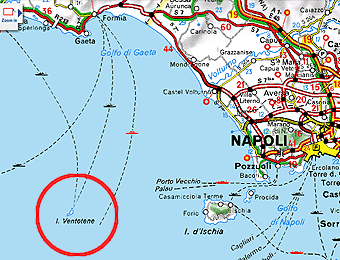New Erasmus university mooted at tripartite 'summit'

VENTOTENE — Italian Prime Minister Matteo Renzi, German Chancellor Angela Merkel and French President Francois Hollande met in this island off the coast of Naples to discuss the future of the European Union after Brexit, considering policies as varied as a joint defence force and a new university for Erasmus students.
After paying homage to the tomb of Altiero Spinelli, the European federalist and one of the founding fathers of the EU, the three leaders began discussions, which were centred on four main topics: economic growth, migration, youth unemployment and defence.
On the fact that Brexit should not harm the future development of the EU, all the leaders were in agreement, with Renzi promising to “turn over a new leaf in European history” and “relaunch” the Union.
Angela Merkel agreed with the Italian premier’s recent reforms, and stated that she would allow margins for a certain degree of economic flexibility, a topic which she was strict on in the lead up to the talks.
The German Chancellor also brought home the message that "Germany now wants more cooperation between member states on the question of the immigration crisis," which she said was no longer a national problem, while all agreed on a common defence system and greater collaboration between intelligence services.
Also discussed was the possibility of restarting the project of joint 'battlegroups' laid out back in 2007. This joint defence program would consist of groups numbering 1,500 soldiers of all different types, which nations across the EU would contribute to in proportion to their population and resources, but no decisive verdict was reached.
Following up on the topic of immigration, Hollande said that he wanted "the EU to protect itself but also to welcome those forced into exile whose very lives are put at risk."
Another topic that received considerable attention under the prompting of the French president was the Erasmus program, which for the last 30 years has allowed EU students to undertake study or work placements within Europe.
On this topic, Renzi mentioned that the EU needed “strong measures in place to relaunch growth and to fight against youth unemployment," before suggesting that the abandoned prison on the nearby island of St Stefano should be turned into a university campus for the European elite. The prime minister visited the prison, which has 99 cells, back in January, and the Interdepartmental Community for Economic Planning has already earmarked 70 million euros for the project.
Renzi, Hollande and Merkel will be joined by leaders of the remaining EU member states (excluding Theresa May) on Sept. 16 at another summit in the Slovakian capital of Bratislava.
lej



